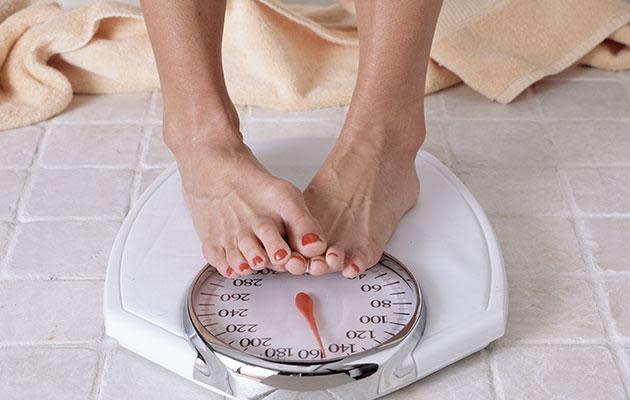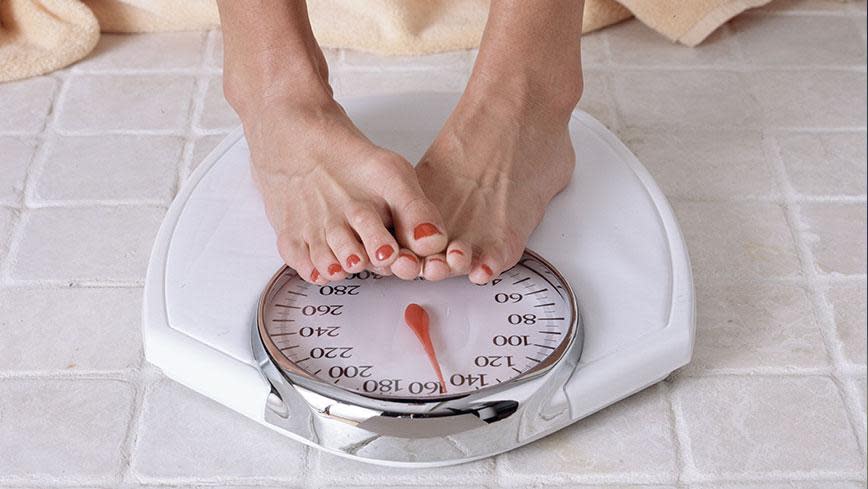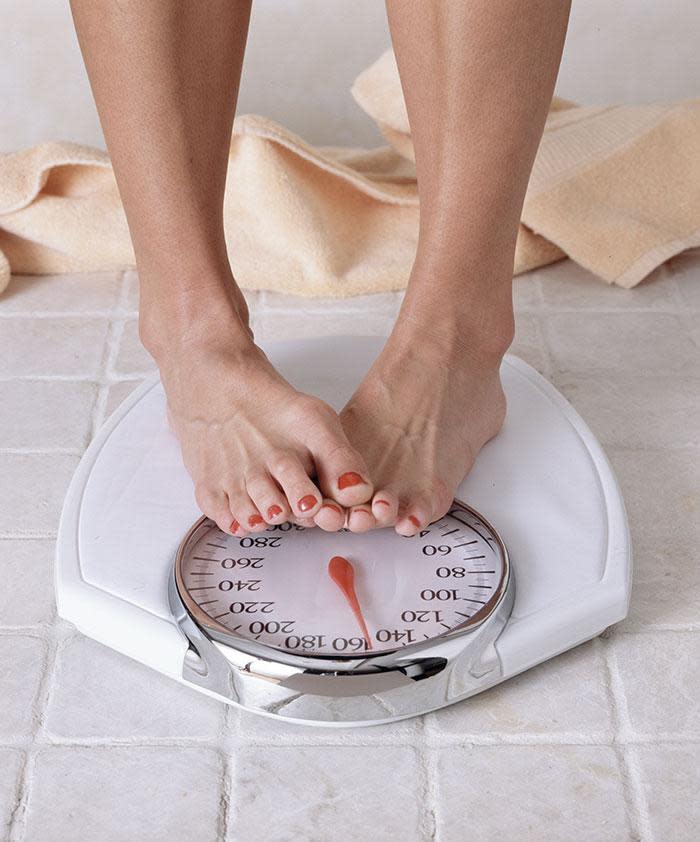I'm Working Out Regularly—So Why Am I Gaining Weight?!
You’ve been killing your workout game for a few weeks now (do it, girl!) and you’re feeling pretty darn good. Your pants fit a little better, you have the energy of a 12-year-old, and you can do twice as many squats as you could three weeks ago.
Then you step on the scale and you’re…two kilos heavier!? Umm, what??
RELATED: 5 Ways You're Cheating Yourself Out Of Seeing Real Results At The Gym
RELATED: 5 Treadmill Hacks That Can Help Shave More Kilos
Before you totally freak out (remember how good you feel?), check out these reasons why your scale might be moving in an unexpected direction.
Your Bod’s Retaining Extra H2O
Within a week of hopping on the sweaty bandwagon, you may notice weight gain. “When you start exercising, your muscles start gobbling up fuel called glycogen,” says Krista Scott-Dixon, Ph.D., Director, Headspace Adjustment Bureau, Precision Nutrition. Since glycogen stores water, you could gain up to 10 pounds in water weight alone, says Scott-Dixon. As long as you're exercising regularly, yes, you're going to carry around some extra agua.
Before you side-eye that bottle of water you’re drinking, remember that this is just your body’s way of preparing itself to kick ass when you work out. Again: It’s not fat, just water.
You Might Be Nomming More
While some people say exercise suppresses their appetite, others leave the gym ready to eat the world. “I’ve noticed that many women tend to eat more when they’re working out,” says Scott-Dixon. That might have something to do with our bod’s natural desire to store fat for baby-making purposes. Your brain sees body fat as energy available for reproduction. So if your weight is in the proper baby-making range for your bod (which varies from gal to gal)—but then you start burning way more calories—your appetite might ramp up in order to maintain that amount of fat.
To keep your post-workout noms within reason, ask yourself the following: Do I want to eat? Or do I need to eat? "Appetite is different than actual hunger," says Scott-Dixon. If that doesn't help, consider upping your lean protein intake, she says.
Your Guns Are Growing
Muscle gains won't show up on the scale immediately—but you'll see 'em eventually. “A beginner could gain a pound or two of muscle in their first few months working out,” says Scott-Dixon.
Since testosterone plays a big role in muscle-building, it’s often a slower process for us gals. Generally, though, gaining a pound of muscle per month is normal, says Scott-Dixon.
Since the scale can’t tell you whether your pounds are muscle, fat, or just good old water, we suggest tracking your progress in other ways. Snapping progress photos, taking measurements, and simply feeling how your clothes fit can be more accurate—and more motivating.

 Yahoo Lifestyle
Yahoo Lifestyle 


